Montana’s judicial elections have been nonpartisan since 1935, when the legislature prohibited political parties from endorsing, contributing to, or making expenditures in support of, or opposition to, judicial candidates. Current proposals to change the non-partisan nature of judicial elections could undermine judicial impartiality by increasing political influence over court decisions by implementing partisan elections for judges.
Senate Bill 42 & House Bill 295
Why Does Judicial Impartiality Matter?
Fair and Equal Justice: Judges must make decisions based on the law and facts—not political ideology or pressure.
Checks and Balances: Our courts ensure that other branches of government do not overreach their authority. Community Impact: Impartial courts protect the rights of all Montanans, from individuals to businesses.
Key Facts About Montana’s Courts
Montana’s Constitution guarantees judicial independence to uphold fairness and the rule of law and includes protections such as the right to a clean and healthful environment, privacy, and government accountability. Montana’s courts resolve the majority of legal disputes in the state—from family law to property rights. Montana’s state courts saw over 50,000 cased in 2023.
Partisan Judicial Elections: What are the concerns?
1. Perception of Bias
Introducing partisan labels in judicial elections may lead voters to perceive judges as extensions of political parties, potentially undermining public confidence in judicial independence and fairness.
2. Judicial Code of Ethics and Judicial Impartiality:
Judges are obligated to uphold the Constitution and apply the law impartially, irrespective of personal or political affiliations. The Code of Judicial Conduct mandates that judges avoid political activities and the appearance of impropriety, ensuring decisions are based solely on law and facts.
3. Voter Interpretation
Partisan elections could signal to voters that judicial candidates prioritize party loyalty over constitutional obligations, which conflicts with the judiciary’s role as an impartial arbiter.
4. Public Trust
Maintaining nonpartisan judicial elections supports the perception of an unbiased judiciary, fostering public trust in legal proceedings and outcomes.
5. Judicial Conduct Restrictions
Judges are restricted from engaging in political activities, such as endorsing candidates or participating in party politics. Partisan elections may create conflicts between these ethical obligations and the expectations associated with party affiliation.
6. Unfair Outcomes
Politicized courts could lead to rulings that favor powerful interests over ordinary citizens.
What do Montanan’s say?
Friends of the Third Branch is thankful for our partnership with League of Women Voters of Montana, who strongly oppose efforts to make judicial elections partisan, reflecting their commitment to maintaining an independent judiciary that serves all Montanans fairly. In collaboration with the Montana Public Interest Research Group, the League commissioned a 2023 poll by the HELPS Lab at Montana State University-Bozeman, which revealed overwhelming public opposition to partisan judicial elections. Of the survey respondents, 50% of voted for President Trump in the 2020 election, 34% voted for President Biden, and 16% voted other.
- 89% disagree with the notion that Montana Supreme Court justices should make decisions based on political party considerations.
- 71% oppose the idea that justices should run under party labels, including 61% of Republican respondents.
- 64% agree that the Montana Supreme Court should have the authority to balance the power of the Legislative and Executive branches, with support across party lines: 83%of Democrats, 62% of Independents, and 60%of Republicans.
- 90% of Montanans agree that having three separate branches of government is the best way to protect Montanan’s constitutional rights and freedoms.
- Only 7% of Montanans polled said, if asked, they would vote against adopting Montana’s current constitution.
Additionally:
A January 2025 statewide survey from Middle Fork Strategies highlights Montana voter’s position on partisan judicial elections. Voters overwhelmingly oppose efforts to inject partisan politics into the judiciary. The poll finds that 65% of Montanans reject partisan judicial elections.
